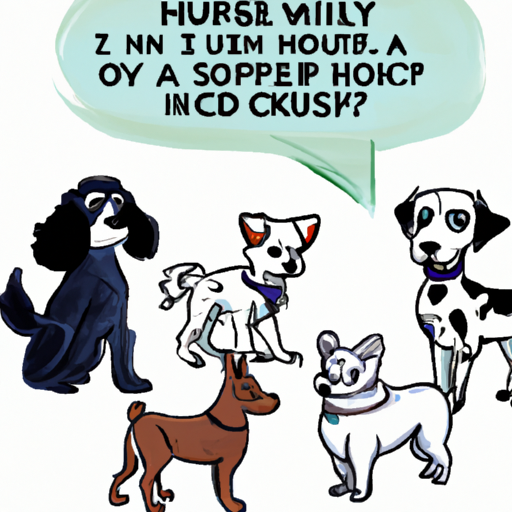As a dog lover and a caregiver, you’ve probably noticed that the social dynamics among dogs can be as complex as those in the human world. Siberian Huskies, known for their striking blue eyes and friendly demeanors, are also known for their unique personalities. It raises the question: What dogs do huskies not get along with?
Table of Contents
- Understanding the Husky’s Temperament
- Breeds Huskies May Not Get Along With
- Facilitating Husky Interactions
- Frequently Asked Questions
Key Takeaways
- Huskies are friendly, energetic, and independent dogs
- They may not get along well with small breeds and dogs with opposing temperaments
- Proper socialization and training can help improve husky interactions with other dogs
Understanding the Husky’s Temperament
One of the most charming aspects of Siberian Huskies is their friendly and outgoing nature. They are known to be sociable and generally get along well with other dogs. However, their high energy levels and independent streak can sometimes lead to conflicts, especially with certain breeds.
Huskies are pack animals, meaning they are used to living and working in groups. This trait can be traced back to their ancestral roots, where they were bred by the Chukchi people of Siberia to pull sleds in harsh winter conditions. Due to their history, huskies are also known for their endurance and need for regular exercise, which is why they can sometimes overwhelm other dogs with their energetic play style.
However, it’s important to remember that each husky is an individual, and their ability to get along with other dogs also depends on their personal experiences and training. This is where your role as a caregiver comes in, to ensure your husky is well socialized and trained to interact appropriately with other dogs.
Breeds Huskies May Not Get Along With
While huskies are generally friendly, there are certain breeds they may not get along with due to conflicting temperaments or physical characteristics. Here are a few examples:
-
Small Breeds: Despite their friendly nature, huskies may not get along well with small dog breeds. This is because huskies have a high prey drive, a trait inherited from their ancestors who survived in harsh environments by hunting small animals.
-
Dominant Breeds: Huskies have an independent streak, which can lead to clashes with other dominant breeds like Rottweilers or Bulldogs. These conflicts can escalate if both dogs are unwilling to back down.
-
Calm or Low-Energy Breeds: Given their high energy levels, huskies may overwhelm calmer breeds like the Basset Hound or Shih Tzu with their boisterous play style.
This insightful article on dog breed compatibility from the American Kennel Club provides a great overview of how breed characteristics can influence canine interactions.
Facilitating Husky Interactions
As a caregiver, your goal is to help your husky navigate the social world of dogs. The following steps can be helpful:
- Early Socialization: Expose your husky to different breeds from a young age to help them learn how to interact appropriately.
- Obedience Training: Teaching basic commands like “sit”, “stay”, and “leave it” can help manage potential conflicts.
- Supervised Interactions: Always supervise your husky when they are interacting with new dogs, especially if they belong to the breeds mentioned above.
For more tips on training and socializing your husky, check out this informative guide from One Top Dog.
Frequently Asked Questions
Q: Are huskies aggressive with other dogs?
A: No, huskies are generally not aggressive. However, their high energy levels and independent nature can sometimes lead to conflicts with other dogs.
Q: Can huskies live with small dogs?
A: Yes, but it requires careful supervision and training to manage the husky’s high prey drive.
Q: How can I help my husky get along with other dogs?
A: Early socialization, obedience training, and supervised interactions are key. You can also consult with a professional dog trainer for personalized advice.
As a caregiver, understanding your husky’s unique temperament and needs can help you create a harmonious environment for them and their canine companions. Remember, patience and consistent training are key to helping your husky form positive relationships with other dogs. For more insights on caring for your husky, explore the resources available at One Top Dog.



